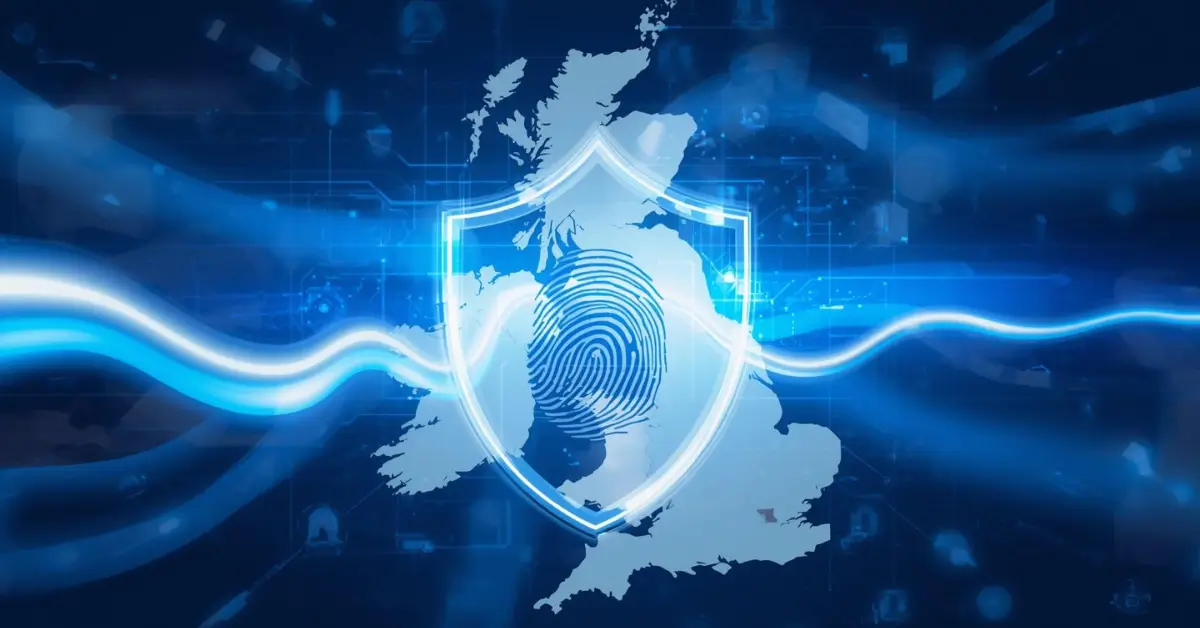The UK Digital Identity & Attributes Trust Framework is the official set of government rules and standards defining what makes a reliable, secure, and trustworthy digital identity service. Created after extensive collaboration with industry, public stakeholders, and academia, the framework provides a common language and baseline quality for digital identity solutions across the UK market.
For businesses, this means there is finally a clear reference point for delivering and evaluating digital identity and digital attribute services. The Trust Framework allows services such as identity verification, document validation, biometrics, and background checks to be independently certified, so providers and partners can operate with greater confidence, trust, and legal assurance.
Crucially, the framework does not prescribe exact technologies. Instead, it sets out outcome-based standards and points to internationally recognised protocols, enabling innovative solutions to flourish while ensuring regulatory compliance. For example, the most recent framework version, “gamma (0.4),” references the standards for privacy, fraud management, and service interoperability now required for trusted UK providers.
The impact on the digital identity landscape is significant. Today, thousands of digital identity and attribute checks are enabled each month in the UK through compliant providers. Service providers can now be recognised for following best practice, and customers, enterprises and individuals alike benefit from improved security, privacy, and user control. This is especially important for industries that handle sensitive personal data, such as compliance and legal, where trust and process integrity are non-negotiable.
Why Clear Compliance Matters for UK Identity Providers
Regulatory uncertainty has long been a pain point for UK identity providers, especially as digital services accelerate and new risks emerge. The UK Digital Identity & Attributes Trust Framework directly tackles this with specific, outcome-driven standards for compliance, certification, and operational transparency.
Identity providers, document authenticators, and attribute service partners now have a unified way of proving their trustworthiness. Instead of ambiguous or fragmented regulations, the Trust Framework sets minimum requirements for quality, security, and user protection and independently certifies organisations that meet these standards. This clarity is vital for providers working with enterprise partners, regulators, and policy professionals seeking reliable, lawful digital interactions.
From a practical perspective, the framework’s compliance rules include robust requirements for fraud management, privacy protection, and interoperability between services. Organisations must align not just with UK requirements, but also with globally recognised protocols, making cross-border and multi-industry digital identity use more seamless than ever. This has become especially important as nearly 70% of UK providers now offer some level of identity or attribute verification, with document-based checks remaining the most widely provided service.
For identity providers, clear compliance saves time and money, reduces reputational risk, and makes regulatory audits easier to pass. More importantly, it signals to enterprise clients and partners especially in compliance and legal sectors that the provider’s solutions are up to date, secure, and in line with government expectations. In a market moving rapidly towards digital-first verification, the Trust Framework is not just a legal box to tick, it’s the foundation for long-term trust and commercial success.
Key Updates in the 2025 UK Trust Framework
The UK Digital Identity & Attributes Trust Framework gamma (0.4) launches its final publication as of July 1, 2025, marking a significant transition for all accredited digital verification services. The new version introduces updated supplementary codes for right to work, right to rent, and DBS checks, aligning rules with the Data (Use and Access) Act and improving compliance clarity for service providers and enterprise partners. Providers certified under the previous beta (0.3) version must uplift their certification to gamma by March 31, 2026, or risk credential expiration.
Notable changes include stricter privacy, data protection, and fraud management provisions, service providers must now integrate “data protection by design and default” into their operational policies. The gamma version offers clearer terminology, updates to technical guidance, improved links to final ICO (Information Commissioner’s Office) guidance, and more rigorous transparency rules so end users can see which providers are certified and what data is being shared. Technical requirements are now codified separately from guidance documents, allowing digital verification services to access exactly the rules required for certification.
The broader scope of version 0.4 means every role identity provider, attribute provider, orchestration provider, holder, and component services has realigned expectations and responsibilities. These standards now reflect best practices learned through industry feedback, government proposals, and practical implementation since the 2022 beta iteration. Certification and audit pathways have also been clarified, with conformity assessment bodies empowered to review provider compliance more rigorously.
How the Framework Affects Credential Verification Processes
Approved under gamma (0.4), the UK Trust Framework now shapes every aspect of digital credential verification in regulated industries. For identity providers and partners, it means credential verification processes must comply with clearly defined standards for security, transparency, and interoperability. Supplementary codes for specific use cases such as right to work, rent, and DBS checks detail how identity attributes should be validated and protected through each step of the workflow.
Processing a credential now requires that providers demonstrate both technical competence and legal compliance. Services must operate with higher privacy guarantees, document how user data is stored and used, and ensure rapid resolution of support issues. Identity proofing operates at strict confidence levels, especially in background checks where regulatory risk is high. Interoperability requirements mean that a provider’s systems must integrate smoothly with other certified services, giving enterprises and compliance professionals broader options for trusted verification. Transparency mechanisms such as digital identity registers published by the government allow all users to check certification status and understand provider practices before any credential is processed.
Ultimately, credential verification under the gamma framework is a collaborative process between providers, regulators, and business partners. With structured audit trails and public certification, policy professionals and enterprise customers can rely on a robust standard supporting digital transformation and reducing risks in legal, compliance, and HR contexts.
Addressing Regulatory Compliance Challenges with EveryCRED
For UK identity providers, adapting to the new digital identity and attributes trust framework can seem daunting but the right technology partner makes compliance easier and more reliable. EveryCRED is designed for the next era of regulated digital identity and credential verification, empowering organizations to meet complex standards, enforce privacy, and earn trust in just a few steps.
EveryCRED provides a robust infrastructure for issuing, verifying, and managing secure digital credentials, adhering to the UK’s trust framework specifications. The platform uses decentralized identity (DID) methods, based on W3C standards, ensuring both interoperability and user control of digital attributes. Whether you are a policy advisor in government or a compliance leader at an enterprise, EveryCRED’s verifiable credentials are engineered to align with gamma (0.4) requirements covering strong encryption, consent-driven data sharing, and tamper-proof audit trails.
For legal, HR, and compliance teams, integrating EveryCRED minimizes administrative burden through open APIs and ensures real-time credential exchange with certified partners. The solution is purpose-built for rapid deployment in complex environments, supporting sector-specific requirements like right to work assessment, peer-to-peer trust verification, and background checks, all within a secure, compliant ecosystem. As the UK framework evolves, EveryCRED allows your organization to keep pace, adapt controls, and demonstrate proactive compliance in every audit or regulatory review.
Conclusion
In conclusion, the UK Digital Identity & Attributes Trust Framework gamma (0.4) marks a significant step forward in defining secure, transparent, and consistent standards for credential verification and regulatory compliance in the UK. For policy professionals, enterprise partners, and compliance teams, the framework provides much-needed clarity, enabling organisations to certify their services, demonstrate best practice, and build sustained trust with customers and regulators.
With robust requirements for privacy, fraud management, and interoperability, the framework helps reduce risk, streamline digital interactions, and foster a more inclusive and secure identity landscape. Innovative solutions like EveryCRED empower organisations to adapt to evolving standards and simplify the journey to regulatory compliance making digital credential management seamless and trustworth. As digital identity services become foundational for both public and private sectors, organisations that proactively align with the Trust Framework will be best positioned to lead in a secure, user-centric, and regulation-ready future. Now is the time to act: invest in frameworks, choose certified partners, and drive the next era of trusted digital transformation.
Ready to simplify your digital identity and compliance journey? Fill out our inquiry form to book a free demo and see how EveryCRED can help your organization achieve and sustain trust framework certification.

 13th November, 2025
13th November, 2025 



